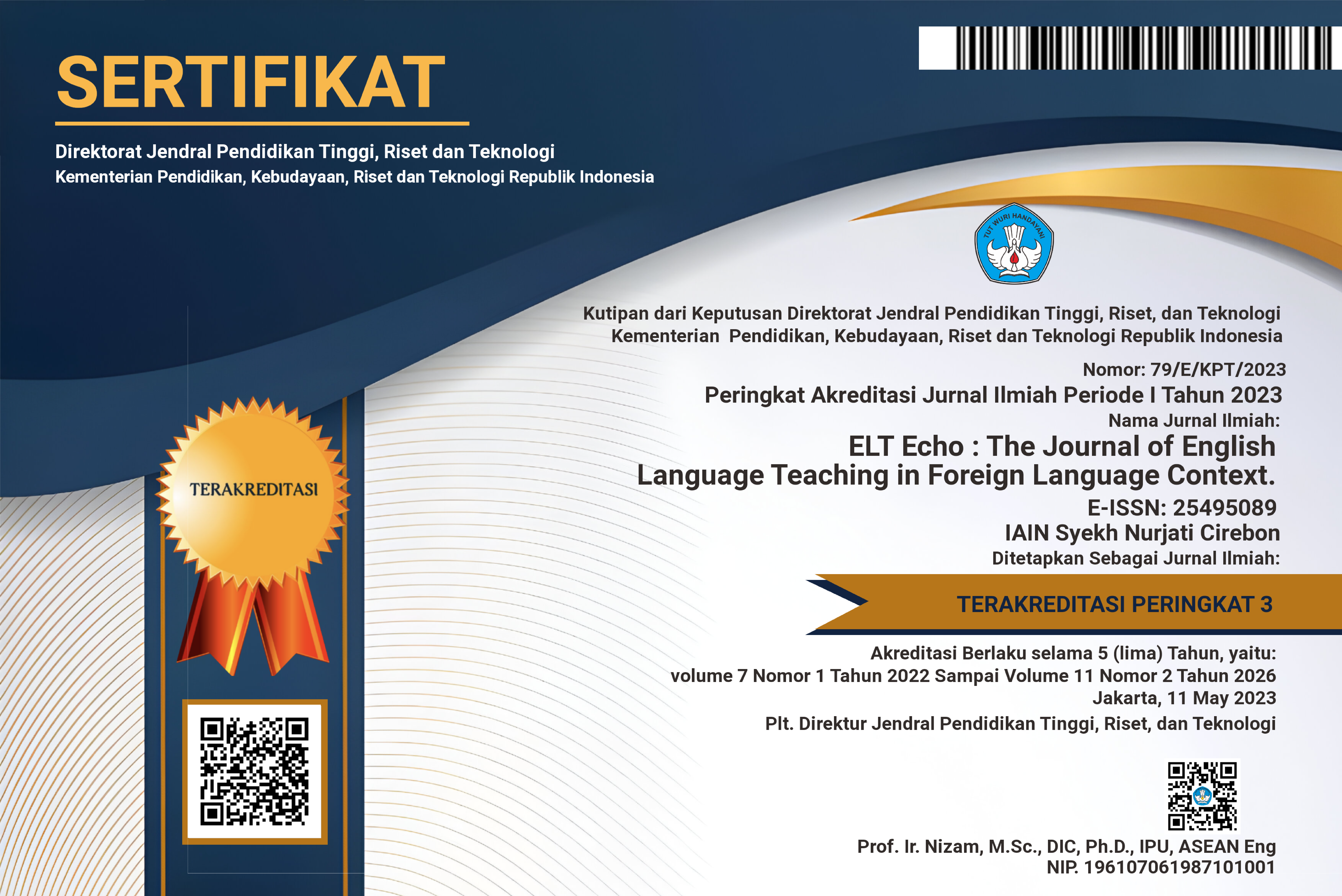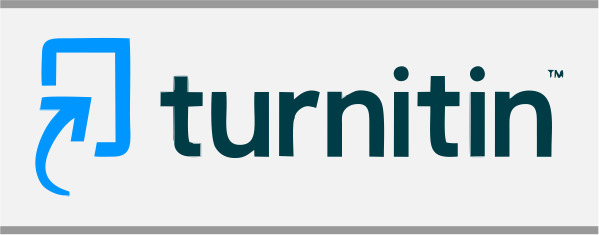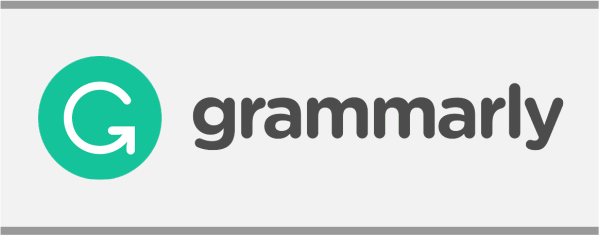Flipped Classroom for Teaching English at Senior High Schools in Banjarmasin
(1) Universitas Lambung Mangkurat
(*) Corresponding Author
Abstract
Keywords
Full Text:
PDFReferences
Ahmad, P., & Triastuti, A. (2021). EFL Teachers' Experiences during the Pandemic: Stories from Rural Area in Tungkal Ilir District. IJEE (Indonesian Journal of English Education), 8(2), 297-308. doi:10.15408/ijee.v8i2.22409
Aprilyasanti, R., Cahyono, B. Y., & Astuti, U. P., (2016). Effect of Flipped Classroom Model on Indonesian EFL Students Writing Ability across and Individual Differences in Learning. International Journal of English Language and Linguistics Research. 4(5), 65-81. https://www.researchgate.net/publication/311707314
Arslan, A. (2020). A systematic review on flipped learning in teaching English as a foreign or second language. Journal of Language and Linguistic Studies, 16(2), 775-797. Doi: 10.17263/j
Chapman, E. (2003). Assessing student engagement rates. ERIC Digest.
Dooley, L., & Makasis, N. (2020). Understanding Student Behavior in a Flipped Classroom: Interpreting Learning Analytics Data in the Veterinary Pre-Clinical Sciences Education Science. 10(260), 1-14. doi:10.3390/educsci10100260
Dwiyanti K.E., Pratama., Ines Marylena. (2020). Online Learning Readiness of Junior High School
Students in Denpasar. IJEE (Indonesian Journal of English Education), 7(2), 172-188. doi:10.17773/ijee.v7i2.17773
Fadhilah, F., Dewi, R. S., Anasy, Z., Eviyuliwati, I., Syauki. (2021). Fostering Students’ Grammatical Competence Through Flipped Classroom. IJEE (Indonesian Journal of English Education), 8(1), 64-79. doi:10.15408/ijee.v8i1.20744
Fahmi, R., Priatin, L. Y., & Irianti, L. (2020). The Use of Flipped Classroom Model in Reading Comprehension. Journal of Applied Linguistics and Literacy, 4(1), 77-94. https://jurnal.unigal.ac.id/index.php/jall/index
Herlindayana, Sahlan & Alberth. (2017). The Effect of Flipped Classroom on Students’ Reading Comprehension Journal of Language Education and Educational Technology 2(1). 1-16
Irawan, A. (2015) Pengembangan Media VideoPembelajaran Mata Pelajaran
Bahasa Inggris Pokok Bahasan Percakapan Teks Deskriptif Prosiding Seminar Nasional Teknologi Pendidikan. 60-68 Program Studi Teknologi Pendidikan: Universitas Negeri Malang. www.tep.pasca.um.ac.id
Nartiningrum, N., & Nugroho, A. (2021). English Teachers’ Perspectives on Challenges, Suggestions, and Materials of Online Teaching amidst the Global Pandemic. IJEE (Indonesian Journal of
English Education), 8(1), 108-126. doi:10.15408/ijee.v8i1.17886
Nugroho, A., & Triana, Y. (2021). EFL Learners‟ Beliefs and Practices on Informal Digital
Learning of English beyond Classroom. IJEE (Indonesian Journal of English Education), 8(2), 198-212. doi:10.15408/ijee.v8i2.19843
Prasetya, R. E. (2021). Engagement Strategies in Electronic Tools English Online Learning: Higher Education Context. IJEE (Indonesian Journal of English Education), 8(2), 309-326. doi:10.15408/ijee.v8i2.22358
Prasetyo, A.H. (2015). Aplikasi Microsoft Producer for PowerPoint Sebagai e-Learning Alternatif Pengganti Ketidakhadiran Guru Dalam Kegiatan Pembelajaran di Sekolah
Prosiding Seminar Nasional Teknologi Pendidikan. 44-59 Program Studi Teknologi Pendidikan: Universitas Negeri Malang. www.tep.pasca.um.ac.id
Rahmani, E.F. (2021). Teaching Practice during the Pandemic Outbreak: Perceptions of Pre-Service English Teachers. IJEE (Indonesian Journal of English Education), 8(1), 47-63. doi:10.15408/ijee.v8i1.19890
Sarah E. Zappe, S.E., & Litzinger., T. A., (2017). Considerations When Evaluating the Classroom Flip Instructional Technique. In Green. L. S., Perkins. R. A, & Banas. J. R. (eds). The Flipped College Classroom Conceptualized and Re-Conceptualized page 51-64. DOI 10.1007/978-3-319-41855-1
Skinner, E. A., Kinderman, T. A., & Furrer, C. J. (2009). A motivational perspective on engagement and disaffection: Conceptualization and assessment of children’s behavioral and emotional participation in academic activities in the classroom. Educational and Psychological Measurement, 69, 493–525.
Subekti, A. S. (2021). Indonesian Learners’ Self-directed Learning and Resilience in Online English Classes: Assessing Interaction with L2 Achievement. IJEE (Indonesian Journal of English Education), 8(1), 1-16. doi:10.15408/ijee.v8i1.20681
Suwastini, N. K. A., Nalantha, I. M. D., & Dantes, G. R. (2021). The Effectiveness of Google
Classroom Media in Teaching English for Tourism at a Tourism and Business Institute. IJEE (Indonesian Journal of English Education), 8(2), 259-280. doi:10.15408/ijee.v8i2.21932
Syafri, M., Saude,. (2022). Distance Learning in the Pandemi Covid-19 Situation:
EFL Learning Under Indonesia's Health Protocol. IJEE (Indonesian Journal of English Education), 9(1), 140-159. doi:10.15408/ijee.v9i1.21045
Talan, T., & Gulsecen, S. (2019). The Effect of A Flipped Classroom on Students’ Achievements, Academic Engagement and Satisfaction Levels. Turkish Online Journal of Distance Education. 20(4), 31-60. doi: DOI: 10.17718/tojde.640503
Tomas, L., Evans, N. S., Doyle, T., & Skamp, K., (2019). Are first year students ready for a flipped
classroom? A case for a flipped learning continuum. International Journal of Educational Technology in Higher Education 16(5), 1-22. doi: https://doi.org/10.1186/s41239-019-0135-4
Uran, S. I. G., (2022). Flipping the Classroom in the EFL Reading For Academic Purpose Course during Covid-19: Barriers and Boosters. A Journal on Language and Language Learning. 25(1). 171-184. http://e-journal.usd.ac.id/index.php/LLT
Utami, S., Nur, J. (2021). An Analysis of Students’ Reading Interest during Learning from Home amidst the Covid-19 Pandemic. IJEE (Indonesian Journal of English Education), 8(1), 147-162. doi:10.15408/ijee.v8i1.17157
Valenza, J. (2012). The flipping librarian [Web log post]. Retrieved from: http://blog.schoollibraryjournal.com/neverendingsearch/2012/08/14/the-flipping-librarian/
DOI: 10.24235/eltecho.v8i1.13257
Article Metrics
Abstract view : 17 timesPDF - 5 times
Refbacks
- There are currently no refbacks.
Â
This Journal is indexed by:
Â

This work is licensed under a Creative Commons Attribution 4.0 International License.










